
Mystery & Macabre: Occoquan Walking Tour
Hear shocking tales and ghostly hauntings of these picturesque homes.
Tour Description
WALKING DISTANCE: 1 MILE Take a stroll back in time with tour guide Nathaniel Lee as we delve into the shocking tales behind these picturesque houses. The walking loop is less than one mile in length around the historic district. This quaint little town on the Occoquan River is said to have many ghosts. Many are drawn to the old Occoquan Inn built in 1810, as it has a bit of a sordid history. It’s said to be haunted by a Native American man, the last of the local Doeg tribe, who was enamored with the innkeeper’s wife. The husband shot and killed the man when he saw him sneaking down the stairs one night. The man’s ghost has been seen in the mirror behind women in the restroom but disappears as soon as they turn around. Store owners have reported having their merchandise strewn around their stores as well. In the Loft art gallery, witnesses have reported a painting flying off the wall, a glowing mist floating through the gallery, phantom footsteps and creaking doors that close by themselves. Come along and hear more about these paranormal tales and perhaps learn a little about the history of the people that built Occoquan into this small but vibrant riverfront town. Over the years, the town has survived and thrived. Today, it is a restored artists' community, with shops, outdoor dining, ghost walks, a town boat dock and more. A number of structures in town, including many in the downtown commercial area, are part of the Occoquan Historic District listed on the National Register of Historic Places (NRHP). Rockledge, the former house of the town's founder, is also listed as a significant structure on the NRHP. Occoquan is derived from an Algonquian Doeg Indian word, meaning "at the end of the water". Located on the Occoquan River, Occoquan was long a site of indigenous peoples' habitation that relied on the river for transportation and trade, as well as fish. By 1765, Anglo-American colonists had established an industrial settlement at Occoquan, with grist mills and tobacco warehouses. The Merchant's Mill was the first automated grist mill in the nation. It operated for 175 years until destroyed by fire. Battles occurred in the streets of the town and on the river during the American Civil War. In 1910, The District of Columbia Workhouse (Lorton Prison) was established. The first prisoners walked through town to tents on the workhouse property across the river. Prisoners were put to work building their own dormitories brick by brick.
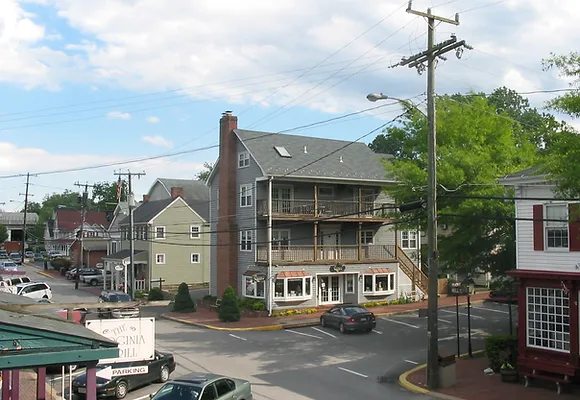

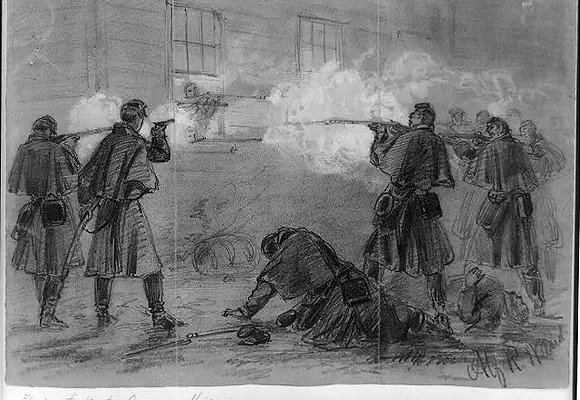

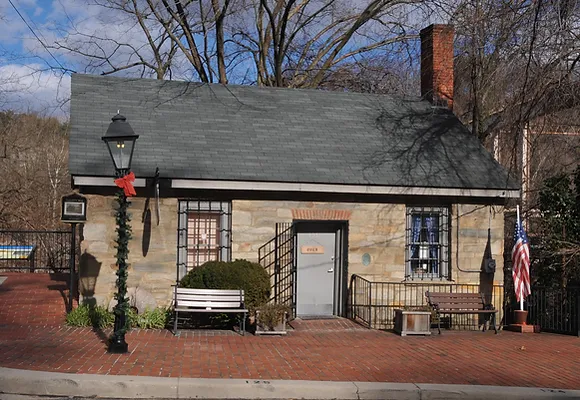

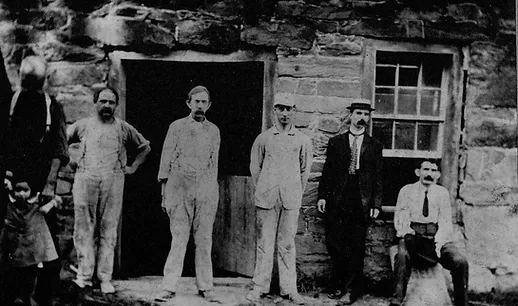

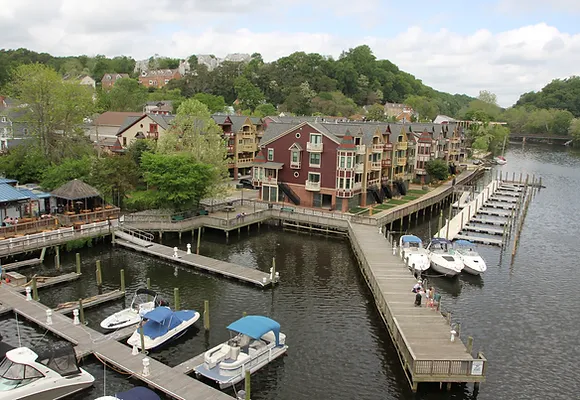

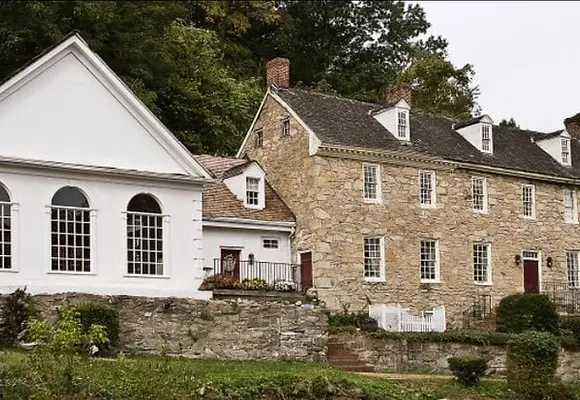

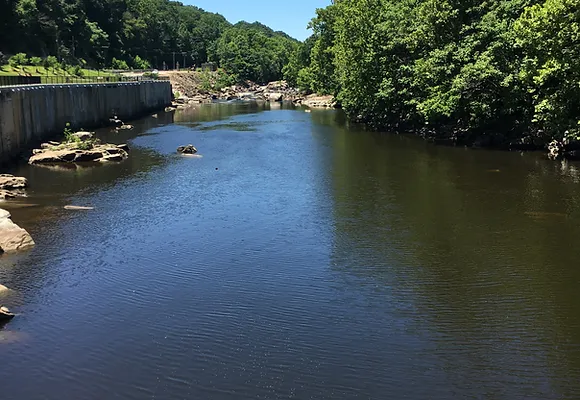

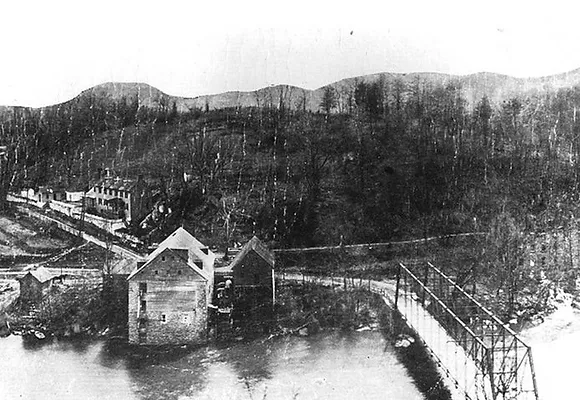

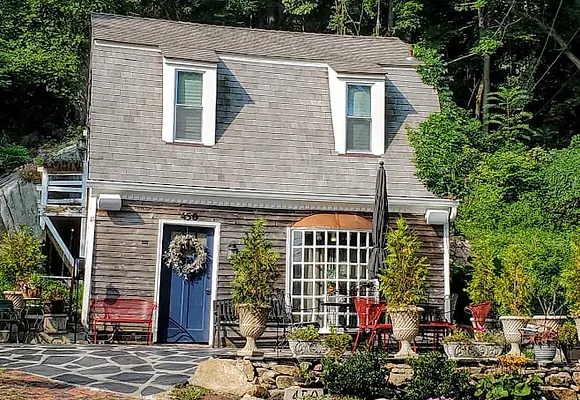

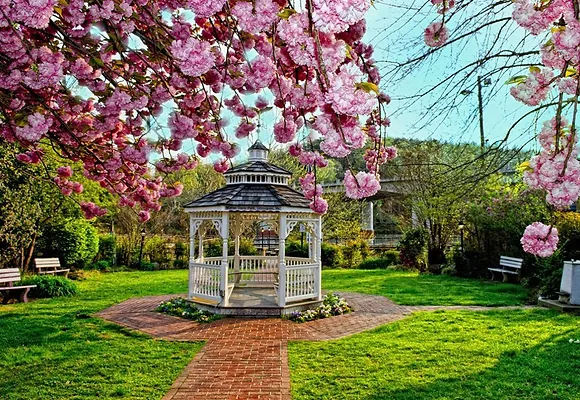

Accessibility and Cancellation Policy
Some of our tours are marked as active walking tours; guests are advised that they should be physically capable and prepared to walk around an urban environment for the time and distances listed. ASSISTANCE DOGS: All assistance dogs are welcome on our tours including registered guide dogs, hearing dogs and medical alert dogs. Please make us aware of this beforehand by email at franconiahistory@gmail.com WHEELCHAIRS AND MOBILITY VEHICLES: Any guests who use a wheelchair must be capable of travelling throughout the length of the relevant tour, some parts of which will be on uneven terrain. Manual wheelchair users are likely to need to bring a personal assistant with them. Self-propelled wheelchair users even with assistance are likely to struggle in some areas and as a result may experience difficulty on some areas of tours. Guests who use an electric wheelchair or mobility scooter must ensure they have sufficient battery power for the duration of a tour. Please do not hesitate to contact us if you have any queries on the suitability of a tour. TOILET FACILITIES: As we host outdoor tours, we are not able to provide permanent toilet facilities for visitors. We however try to ensure our tours are designed to pass via publicly accessible toilets as a rest break for visitors. We are however not able to guarantee that these will be open at all times during our tours. Our guides will always try to direct visitors towards open facilities if required. TOUR CANCELLATION POLICY: Franconia History LLC understands that schedules change, especially while you are on vacation or with family. You are welcome to cancel or reschedule your tour with us at no additional charge up to twelve hours prior to the scheduled start time of your tour. If cancellation is required, you are requested to notify us no later than twelve hours before your scheduled tour start time. Please note that any cancellations you make within twelve hours of your scheduled tour start time will cause the forfeiture of one-half of the fee you paid for the tour. Franconia Museum LLC cannot be held responsible for delays or cancellations of customer trips that result from weather, traffic, mechanical difficulties or circumstances beyond our control. If Franconia History LLC is forced to cancel your tour due to reasons outside of company control, all prior payments will be refunded to you within ten business days.
Contact Details
franconiahistory@gmail.com
Franconia Museum, Inc., 6121 Franconia Road, Alexandria, VA 22310, USA